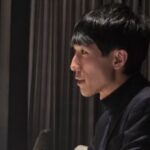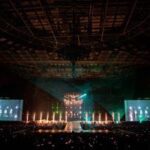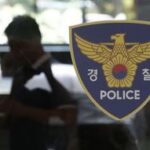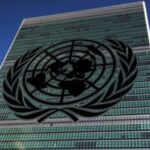|
It has been revealed that the number of North Korean defectors who crossed the border alone without parents or family and could not properly settle in South Korea is rapidly increasing. The reason is believed to be their struggle to adapt to life in South Korea and their economic difficulties. As many unreported solitary deaths are not included in the statistics, calls are growing for the expansion of support for defectors.
According to the Ministry of Unification on the 7th, the number of solitary deaths of defectors who received corpse placement support from the South-North One Foundation last year was 14, more than double the number in 2019 (7). In particular, the number of solitary deaths peaked at 19 in 2022. A total of 50 defectors have been placed in national memorial halls and other facilities over the past five years, where they will remain temporarily until reunification or until their families come to find them.
One of the main reasons for the increase in the rate of solitary deaths among defectors is their vulnerable economic situation. According to the Ministry of Unification, about 7,200 out of the total 34,000 defectors are classified as high-risk groups with overlapping crisis information for a long period. This means that 21% of all defectors are under government management because they are in such a difficult economic situation that they cannot pay health insurance premiums, housing rent and management fees, and communication fees for more than three months. In particular, it seems that the young generation, who should actively participate in economic activities, cannot overcome economic pressure. According to the Ministry of Unification, 42% (6 people) of the solitary deaths of defectors last year were in their 30s and 40s. A foundation official said, “It’s hard to know exactly why all the defectors in their 30s and 40s died, but most of them are believed to have had difficulty living in South Korea’s capitalist society. They are presumed to have died for various reasons, such as illness and suicide because life in South Korea is not easy.”
The solitary death of defectors is repeated every year. In October 2022, a defector, Mr. Kim (49), who came to South Korea alone from North Hamgyong Province in North Korea about 20 years ago, was found in a skeletal state in a rental apartment in Yangcheon-gu, Seoul. Mr. Kim’s body was so decomposed that the National Forensic Service could not perform an autopsy. Considering that Mr. Kim was wearing winter clothes, the police estimated that he had been dead for over a year. It was investigated that Mr. Kim had been struggling with living expenses, including defaulting on apartment management fees since December 2020. In 2019, a defector Mr. Han (41), and his six-year-old son were found dead in a rental apartment in Gwanak-gu, Seoul, two months after their death. When Mr. Han and his son were found, the refrigerator in the house was empty.
|
Those who defected alone without family, relatives, or friends were found to have no one to ask for help even when they were struggling with life. In the North Korean Defector Status Survey conducted last year, 22.3% of the defector respondents said that they had no one to talk to when they were discouraged or depressed. The sudden non-face-to-face society brought about by COVID-19 is believed to have exacerbated this crisis. To make matters worse, the actual number of unreported solitary deaths of defectors is believed to be much higher. Usually, local governments are responsible for holding funerals after confirming the fact of solitary death, but if local government officials do not recognize the fact of defection or do not report the content to the Ministry of Unification, it is not included in the statistics. A Ministry of Unification official explained, “In many cases, local governments across the country do not know that the solitary death is a defector, and there are also cases where they do not report to the foundation. It is believed that many more defectors died alone and were omitted from the current statistics.” Experts unanimously say that thorough support for defectors is needed to prevent such tragedies.
Professor Yong-Hyun Kim of Dongguk University’s North Korean Studies said, “Some support for defectors is being made even in the job search process, but this alone has limitations in improving actual life. The government’s help is needed in all processes where defectors adapt.”
By. Nam Myoung Kim

![[단독] 목숨 걸고 탈북했는데 끝은 ‘무연고 사망’…고독사 늘어나는 탈북민](https://contents-cdn.viewus.co.kr/image/2024/01/CP-2023-0094/image-86ade877-34ac-4d1a-9303-bcebe3e20874.jpeg)
![[단독] 목숨 걸고 탈북했는데 끝은 ‘무연고 사망’…고독사 늘어나는 탈북민](https://contents-cdn.viewus.co.kr/image/2024/01/CP-2023-0094/image-d800cf87-bb08-4010-9a37-aefd40d883fb.jpeg)














Most Commented